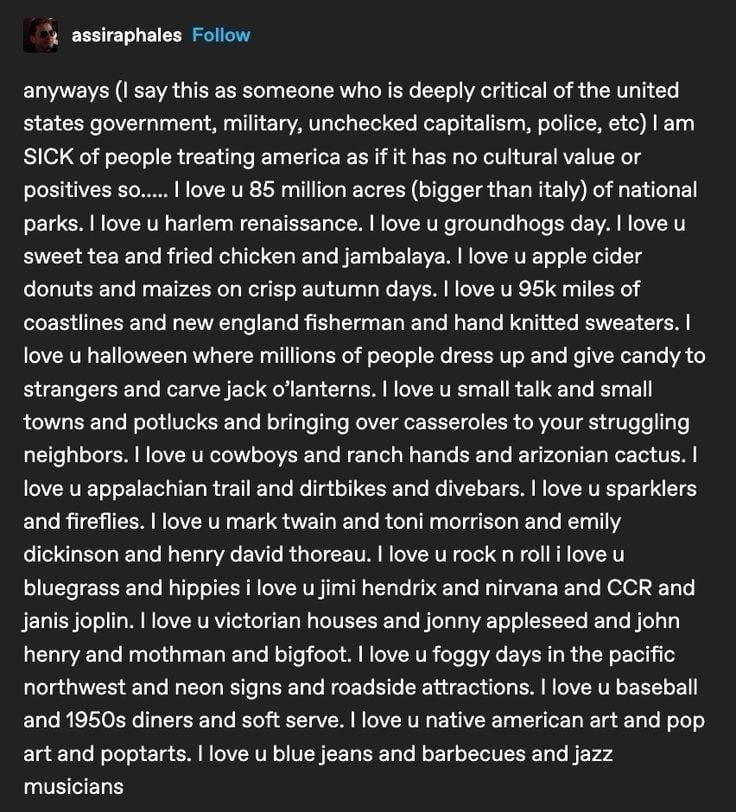this post was submitted on 03 Sep 2024
509 points (93.1% liked)
Curated Tumblr
3991 readers
290 users here now
For preserving the least toxic and most culturally relevant Tumblr heritage posts.
Image descriptions and plain text captions of written content are expected of all screenshots. Here are some image text extractors (I looked these up quick and will gladly take FOSS recommendations):
-web
-iOS
Please begin copied raw text posts (lacking a screenshot that makes it apparent it is from Tumblr) with:
# This has been reposted here to Lemmy as part of the "Curated Tumblr Project."
I made the icon using multiple creative commons svg resources, the banner is this.
founded 1 year ago
MODERATORS
you are viewing a single comment's thread
view the rest of the comments
view the rest of the comments

I reject the idea that something that originated in one society cannot become another society's culture. It morphs and changes, and is reinforced by the society until it becomes a part of their culture, too. Surely you would not say that tomato-based foods aren't part of Italian culture just because they came from the new world?
What they make of it in Italy is vastly different from what was done with it in the Americas, so no, but if it's the same practice that was brought over through migration and most people started doing it, can it really be considered original to the culture of the country? I personally don't think so...
Light beer as it's known today is US culture (nothing in common with small beer), but as I mentioned, trick or treating is just a tradition that came as is from elsewhere and was adopted by the locals.
Does culture have to be original?
Also, having looked into the trick or treating thing a bit: Canada invented the phrase "trick or treat", and America has variations such as trunk-or-treating. Modern trick or treating doesn't involve performing at the door. Some of these innovations (ie. the phrase "trick or treat") have even propagated back to the originating countries. I think a binary view on this is too restrictive and unrepresentative of the reality of the situation. The tradition is still very similar to what it was, yes, but it changes over time.